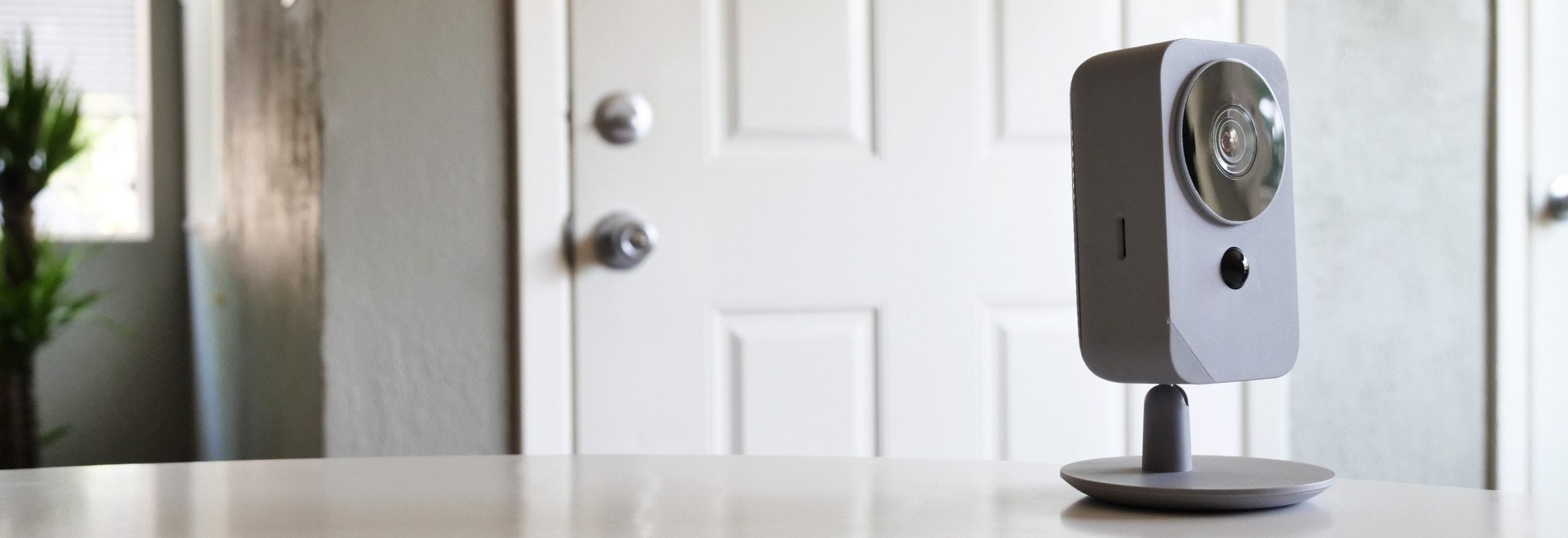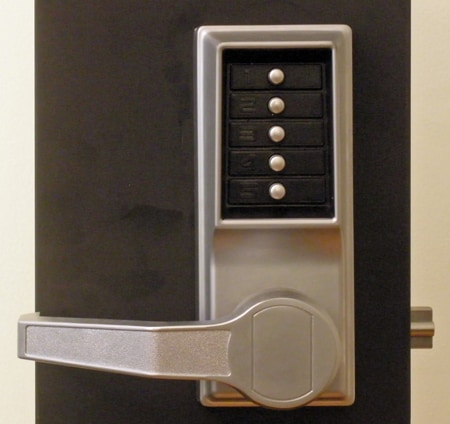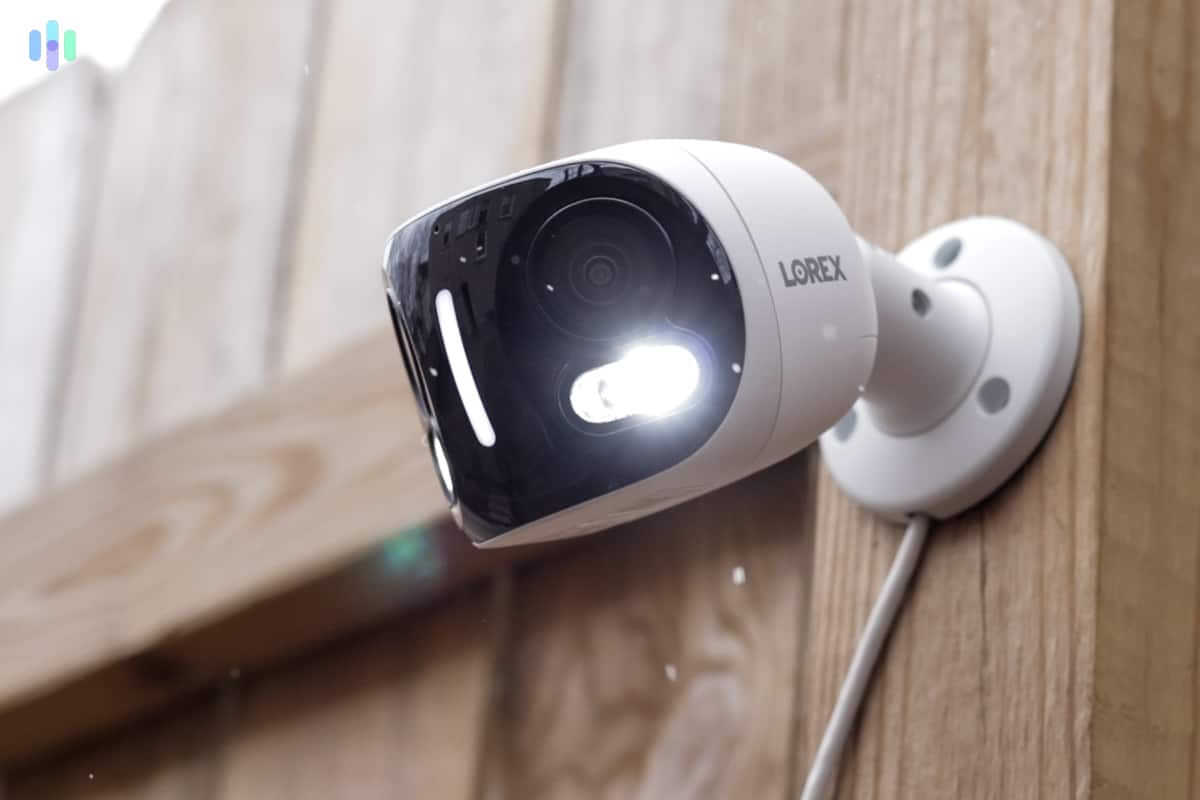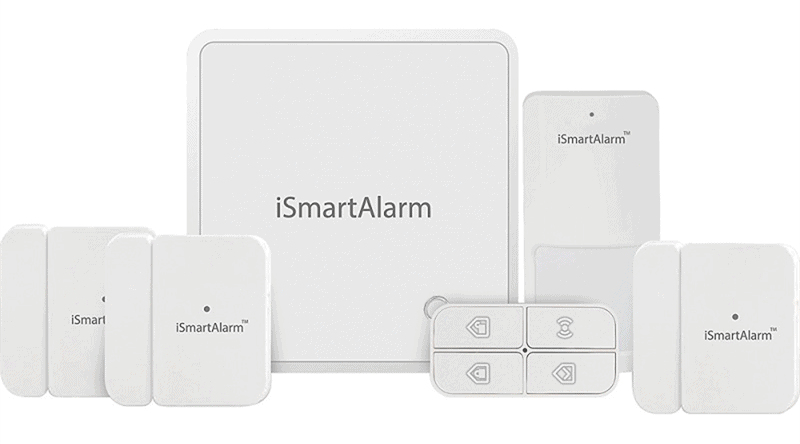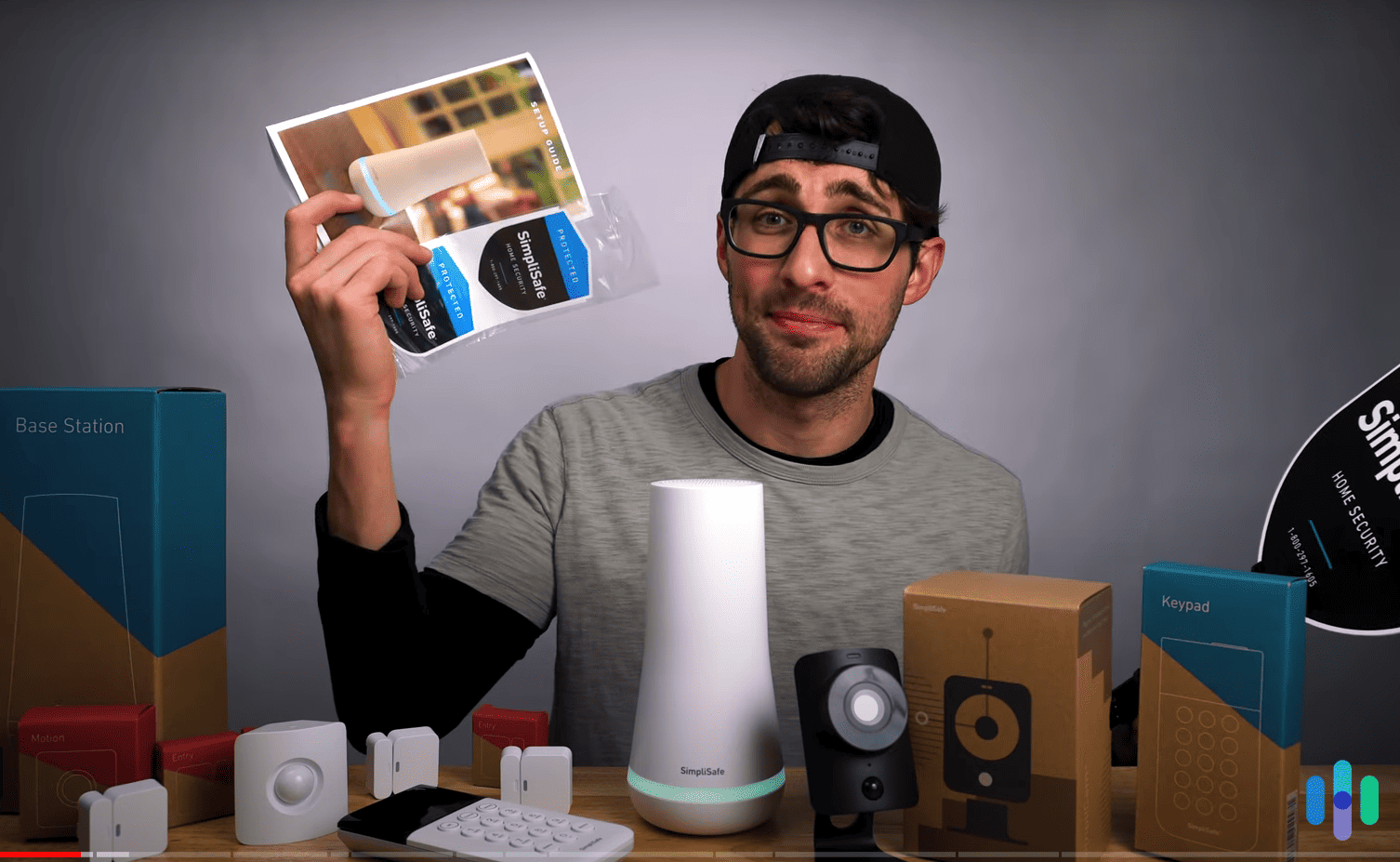You’ve packed your bags, booked your hotel and flight, and prepared your one-week itinerary. Everything seems to be in order. But besides the things you’re taking with you, you should also think about the things you’re leaving behind. How can you be sure all your belongings will be there once you get back home? By securing your home.
In this guide, we’ll provide you valuable insight and tips on how to secure your nest while on vacation. Our experts have prepared a checklist to help keep your home safe not just from burglaries, but other home dangers as well. You deserve a physical and mental break on your much-awaited holiday, so protect your peace of mind by securing your home and your belongings.
Security System Finder
By answering a handful of easy questions, you can discover the security system that’s perfectly tailored to your needs!

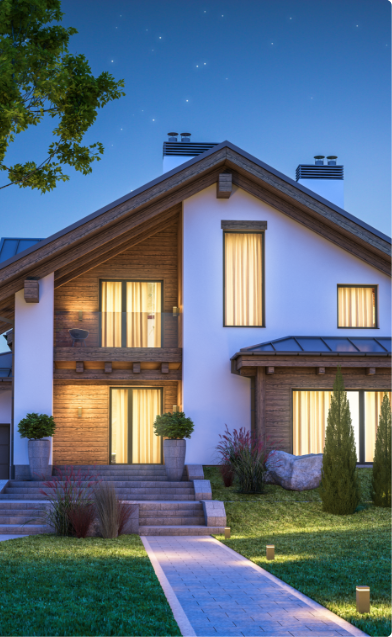
How to Secure Your Home While You’re on Vacation
A lot of factors go into a good security plan, and trying to tackle all of them at the same time that you’re planning a trip can feel overwhelming. If you focus on one piece of your security at a time, though, you can make the process relatively stress-free.
Security Systems
Before you read any further, consider how a home security system installed could give you peace of mind while you’re away. In the simplest terms, a home security system is a set of electronic components that link together and monitor your home. Together, these components work to keep your home safe from a variety of threats, including fires, floods, and home invasions.
Do you need a home security system? Most likely. We recommend that all homeowners install security systems because, as the saying goes, an ounce of prevention is worth a pound of cure. And certainly having a security system makes it easier to check on your home when you’re on vacation.
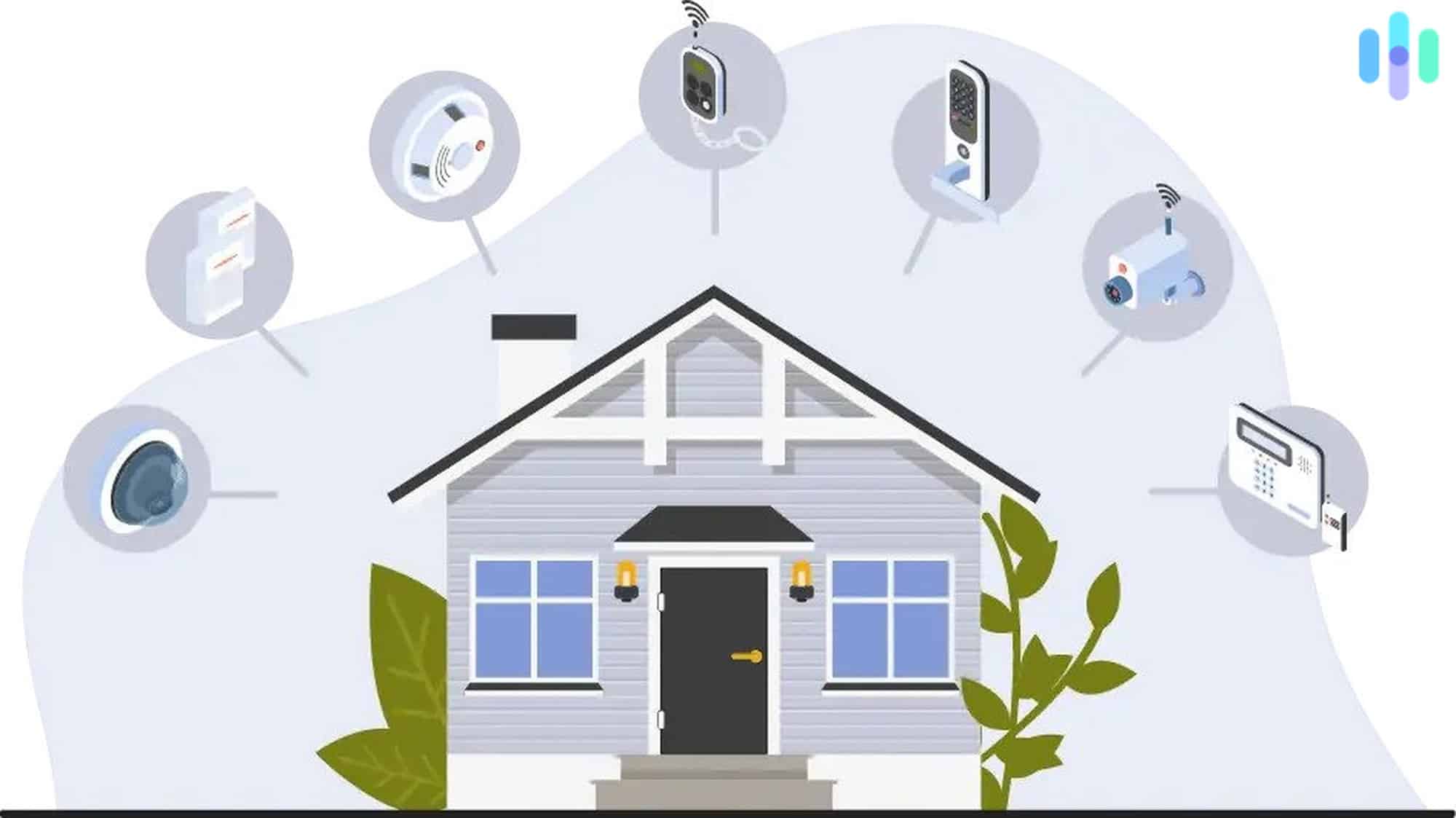
The specific components you need for your security system will also depend on your particular home setup. There’s no one-size-fits-all solution in home security. At the minimum, though, you should have sensors that can detect if an entry point has been breached, motion sensors that can detect movement indoors while you’re away, and security cameras.
Let’s discuss how you can effectively use the most common security system components to protect your homes.
Outdoor Lighting
Start by making sure thieves can’t use the cover of darkness to break into your house. Well-placed security lights can eliminate any shadowy hiding spots. Even if they know you’re not home, burglars will hesitate to break into your house if they think your neighbors might see them.
So how should you set up your outdoor lights? There’s a balance you have to strike. For starters, they shouldn’t be encroaching on your neighbors’ properties. So if you decide to get lights for the side of your house, make sure they’re just bright enough to illuminate your property. You should be especially mindful about light entering a neighbor’s windows. At the same time, you should make sure you have enough lighting to eliminate all hiding spots. You should light up any entry point into your home, including all doors and windows, so that no one would dare hang around there.
We strongly recommend going with smart lights instead of traditional lights, though. Smart lights are cheap, but they let you schedule and control their modes so that they aren’t always on. You see, burglars are just as likely to attack during the day as they are likely to attack at night. And lights on when it’s bright outside is almost a sure sign that no one’s home.
Security Cameras
Security lights work particularly well when paired with security cameras. Lights can startle potential burglars, but cameras connected to security apps let you see exactly what’s happening at your house, even if you’re hundreds of miles away in a hotel room. If you get alerted that an alarm has gone off, you can call the police and put a stop to it. You probably won’t have to call the police, though, because the cameras themselves send messages to potential home invaders that you take your security seriously.
- As with lights, think carefully about where you place cameras so that you can see all of your entry points. Installing outdoor security cameras 8 to 10 feet off the ground will ensure you get the best angles and make the cameras harder to steal. You might also consider hiding your outdoor cameras, though you may be more interested in using your security cameras to deter burglars. Hidden cameras don’t work as well at frightening burglars away.
- Finally, think about the IP rating of your cameras. The IP rating tells you just what kind of weather a camera can withstand. You don’t want to lose your video feed just because a random thunderstorm pops up. Outdoor cameras need ratings of at least 65. At that level, they are dust-tight and can withstand water projected from a nozzle. However, for even more protection, you can purchase cameras with ratings up to 68. At that level, they resist dust, dirt, and sand, and can even be immersed in water up to 1.5 meters for 30 minutes. If you’re wondering which cameras measure up to these standards, you might take a look at our complete list of the best outdoor security cameras.
Video Doorbells
Video doorbells are one of the most useful security products to hit the market in the last decade. Of course, as the name implies, these devices work great as cameras. They’re placed to capture exactly what’s happening on your doorstep. In addition, though, many video doorbells include two-way audio. Two-way audio allows you to talk to whoever happens to be knocking, giving that person the impression you’re at home on the other side of the door, even if you’re on the app across the country.
Home Security Sensors
Finally, let’s talk about sensors. Sensors may not be as advanced as security cameras; they can’t show you what’s going on at your house. But security sensors are reliable at detecting possible intrusions. And because they’re usually cheaper than cameras, you can cover your house with sensors without breaking the bank.
- Door sensors: Door sensors use magnetic circuits to send you alerts when your door is opened.
- Window sensors: Much like door sensors, window sensors let you know when the seal on a window has been broken.
- Glass break sensors: Glass-break sensors come in one of two varieties. One detects frequencies, the other detects shock waves. Either one will tell you when someone’s broken a window at your house.
- Security yard sign or sticker: Finally, if you’ve invested time and money in a security system, let would-be burglars know about it. Display a yard sign or sticker with the alarm company’s logo. Signs like these tell a thief that a house will be more trouble than it is worth to try and rob.
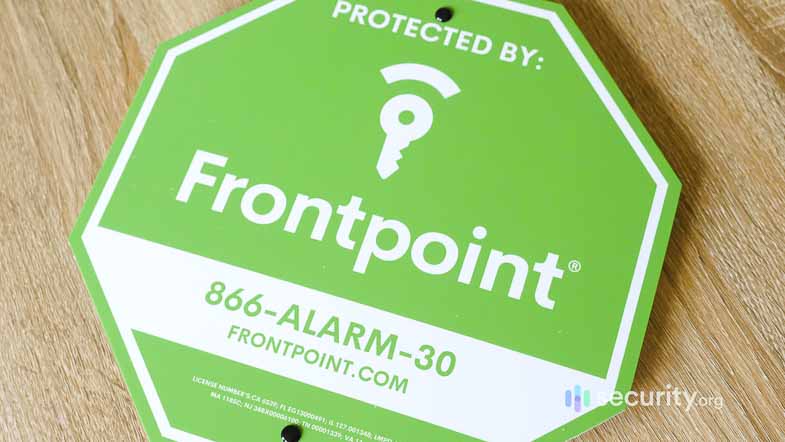
Most home security companies offer their components in packages tailored to different needs. Home security package costs can range from $60 all the way up to $900, depending on what you want. But these days, many companies allow you to customize your own packages.
Don’t Have A Security System? Set One Up Before You Leave
What if you don’t have a security system? Well, we strongly suggest you get one before you leave for your much-deserved holiday. And the good news is it doesn’t take long to set up a security system. The lead times, in our experience, are five to seven days for DIY security systems that you install yourself and three to five days for professionally installed systems. That’s starting from the time you order the system online or call your alarm company.
Of course, picking a security system is not an easy decision to make. You may want to check out our list of the best security systems for a shortcut, or the best wireless security systems because they’re the quickest to install. But if you prefer to do your own shopping, these are the factors you should consider:
- Price: Check out the costs of the equipment itself, but also consider any installation fees you might have to pay, as well as the price of any monitoring plans.
- Equipment options: Different kinds of homes need different security setups. Make a list of exactly what you need and look for companies that offer packages to suit those needs.
- Installation: Look into whether a security system offers DIY vs. professional installation, since DIY can save you some money.
- Smart home integration: Ask which smart home platforms a security system works with.
- App features: Explore the security system’s app and just how much control it provides over the system.
- Customer service: Look for companies with 24/7 customer support and a variety of help options. Do you have to fill out a ticket and wait 24 hours to get a response to your questions, or can you get live help online or over the phone whenever you need it?
- Permits: Most municipalities require you to purchase home security permits. Some companies will take care of the paperwork and filing for you.
- Monitoring Options: Finally, in addition to the equipment itself, you’ll need to make decisions about how you will monitor your home. There are two basic options:
- Self-monitoring: You can self-monitor your no-contract security system, which means you’re responsible for keeping an eye on your house and for contacting emergency services if you need them. Typically, self-monitoring packages come with apps for your mobile devices, which send you notifications if the alarm systems detect potential threats. You can then use your cameras to view what’s happening and decide what you want to do. Here, we provide a complete list of the best unmonitored home security systems.
- Professional monitoring: The second option is professional monitoring. This option means that a security company monitors your home 24/7 so you don’t have to. If monitoring personnel notice any unusual activity at your home, they’ll call you or the appropriate emergency response agency. Professional monitoring subscriptions cost anywhere from $10 to $60 a month. However, you may prefer to skip those fees. Many companies allow you to sign up for 30 days, though, and that’s enough to cover your vacation.
Unfortunately, most home security systems aren’t tax-deductible. However, most insurance companies offer discounts if you’ve installed security devices such as smoke detectors and burglar alarms.
Finally, as you’re outfitting your home before you leave on vacation, don’t forget that you’ll need security at your destination as well. Take a look at our list of best home security systems for vacation homes.
Tip: To save money, self-monitor your home security system. While you’re on vacation, though, sign up for one month of professional monitoring so you can relax and let someone else keep track of what’s happening at home.
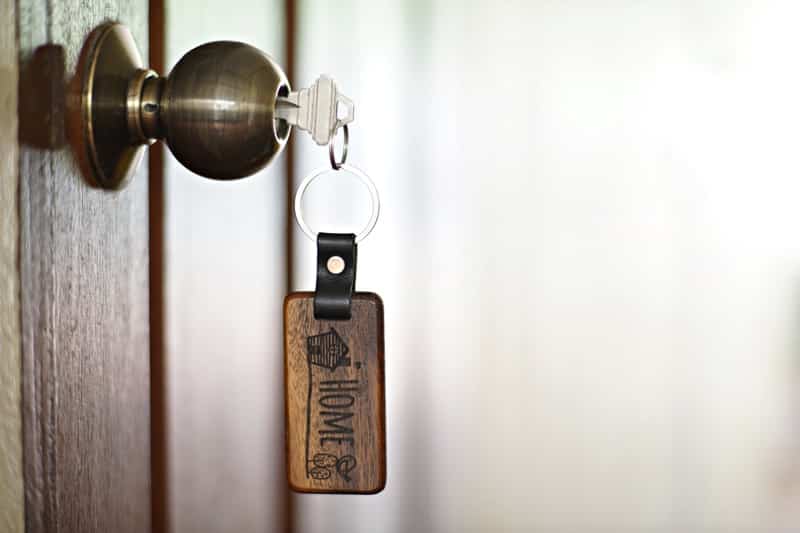
Securing the Outside of Your Home
We’ll assume at this point that you’ve taken our advice. You’ve purchased a home security system and signed up for professional monitoring while you’re away. What else can you do to make sure your home is secure while you’re on vacation?
Start with the outside of your home:
- Lock everything. Make sure doors and windows are locked, and double- or triple-check everything before you get in the car, including your garage door. You might even disconnect the garage door opener completely to ensure no one can get in. Another good option is to make your garage door “smart” so you can monitor it and control it remotely. Along the same lines, consider installing a smart lock on your front door. This device allows you to monitor who goes into your house remotely and to unlock the door in the case of an emergency. Learn how to install a smart lock.
- Remove any spare keys from around the exterior of the house. Collect any spare keys from outside before you leave for vacation. If friends and trusted neighbors will be checking on your house, give them their own keys so you don’t have to leave any lying around for burglars to find. Of course, if you install smart locks, you can give guests passcodes so they can get in without keys. If you prefer to have more control over who comes and goes, however, you can let guests in yourself using an app on your mobile device.
- Suspend mail and newspaper delivery. A full mailbox or a pile of newspapers on your front porch tells burglars you’re away. At a minimum, ask a friend or neighbor to come over regularly and take mail and newspapers inside. If you plan to be gone for more than a week, though, you will want to contact the post office and the newspaper and ask them to stop service until your return.
- Leave a car in the driveway. Leaving a car parked in the drive is yet another way to suggest you are home. If you need to take yours with you, ask a friend or neighbor to park at your house until you return.
- Hire someone to tend your yard. If you plan to be away for a long period of time, ask someone to cut your grass or, if it’s winter, clear snow from your sidewalk. An untidy yard hints that no one is home.
- Have someone take out the trash. Trash buildup is yet another sign of an empty house.
- Keep schedules regular. While you may want to stop your mail from coming, it’s a good idea to keep other services regular. If, for example, someone cleans your house each week, they should come while you’re gone as well.
Securing the Inside of Your Home
Outer defenses are important, but there are things you can do inside your house to prevent a home invasion while you’re gone:
- Use lights effectively. Lights tell everyone you’re around, that you’re up and about inside your house. Use them, then, to simulate your presence. Be judicious, though. Leaving all the lights on in your house all the time will seem strange. One or two left on in common areas like the living room or kitchen will do the job. You can set lights on timers, so they go off and on. A much better option, though, is to incorporate home automation into your lighting routine. Smart bulbs, like those from Philips Hue, let you control lighting with your phone. You can create schedules or utilize “away” modes so the lights turn on and off just as they would if you were home.
- Deploy your electronics. Like lights, working televisions, radios, and stereos give the impression someone is at home. In the old days, you left these on when you went out. These days, you can install smart plugs on your devices. These gadgets, which you can purchase for as little as $10, connect devices to outlets. Then, you can set up a schedule for when the devices turn on and off.
- Keep valuables out of sight. Thieves are always on the lookout for easy opportunities. Valuables left near windows are about as easy an opportunity as you can give them. It takes only seconds to smash a window, grab an iPad, and disappear down the street. Keep your valuables out of sight. In fact, you may want to store especially valuable items in a lockbox or safe while you’re away.
- Consider your curtains. Another simple way to make sure a burglar can’t see your valuables is to close your blinds or your curtains. Be careful, though, to think about what signal you are sending. Blinds that stay closed all day long may tell a potential thief that you’re out of town. The best policy is to be consistent. If you keep your shades open during the day normally, leave them open during the day while you’re gone. If they’re normally down, stick with that. Of course, motorized blinds can solve the problem altogether. Using a phone app, you can raise and lower motorized blinds at random times, creating the impression you’re at home.
- Rely on your friends. Ask someone you trust to visit your house regularly while you’re gone to give your home that lived-in feel.
- Hire a house sitter. Finally, if you’re particularly nervous about leaving, you might consider hiring a house sitter. Of course, check the references of anyone you hire. Ask for names and numbers of people the sitter has worked with and take the time to call these numbers.
FYI: TV simulators are devices that use lighting to create the illusion someone is watching TV in your home. They can be a good option if you can’t afford smart devices but still want to give the impression someone is at home.
Digitally Secure Your Home
Giving the appearance that you are at home extends to your virtual self as well. Following these tips can conceal the fact that you’re on vacation:
- Don’t broadcast your trip. Don’t indicate publicly that you’ll be away from home. This advice extends to social media. It is tempting to post pictures of your adventure while you’re in it, but wait until you get home.
- Hide your GPS. Industrious thieves break into cars and steal tourists’ GPS devices. The thieves already know you’re away from home, and with a few taps they can find out where your home is. Take your GPS devices with you when you get out of the car, or, at a minimum, hide them in the glove compartment or under a seat.
- Set “away” messages. Make sure you’ve updated your away messages on your phone and email so you don’t seem like you’re ignoring people. At the same time, carefully word these messages so you don’t advertise that you’re away from home.
- Stop online orders. You’ve already stopped the post office from delivering mail while you’re away. You should also make sure you don’t have any packages coming from Amazon or Etsy.
>> Also check out: Is Etsy Safe?
Before You Go
Finally, before you buckle yourself into your car and turn on your traveling music, there are a few items to check off your list:
- Make sure your security system is ready. Double-check your cameras to make sure they’re crystal clear and aimed in the right direction. Test your outdoor lights to make sure everything is working as it should. See if your motion sensors are picking up movement. Finally, make sure that any device that runs on battery, or that uses battery power as a backup, has sufficient life left.
- Check your homeowner’s insurance policy. Make sure there aren’t any holes in your coverage. Are you protected in case of a violent thunderstorm, for instance? What about vandalism? Certainly, find out whether your current policy covers all your belongings.
- Contact your security company. Notify your alarm or monitoring company where you’re going and when you’ll be back.
- Tell your neighbors. While, again, you don’t want to let everyone know you’ll be away, telling neighbors you trust will encourage them to be alert to any unusual activity at your home.
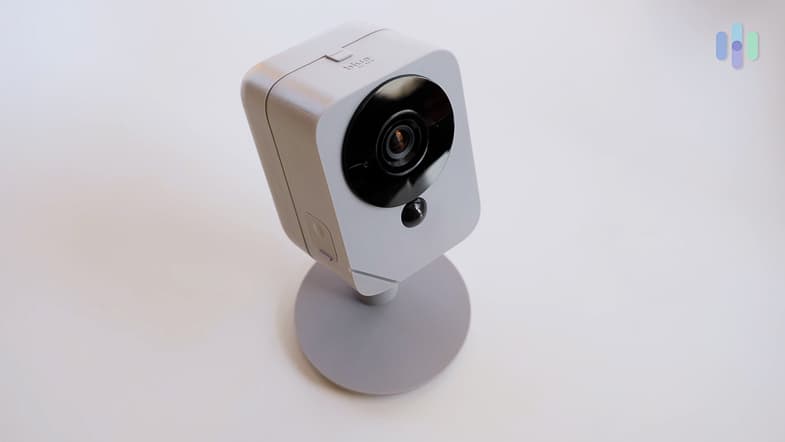
Threats Other Than Burglaries
Most of the tips we’ve offered you so far have to do with preventing home invasions while you’re on vacation. There are other threats to your home, though.
Floods
Floods damage thousands of homes each year. Those floods can come in the form of natural disasters, but internal events such as burst pipes can also cause them. Take steps to avoid either scenario:
- Install environmental sensors. You can purchase water-leak detectors from most home security companies. You can also purchase them at your local hardware store. You can use smart thermostats to make sure your home doesn’t get too hot or too cold, which could lead to pipes freezing and leaks.
- Shut off the water main. Unless there’s a specific reason to keep the water supply on, shutting the water off completely will ensure pipes can’t leak or burst. Sometimes, you can find the water main inside your home, but more often it is outside, either attached to the side of the house or in a grating near the street. The “on” and “off” positions should be marked, and you can use a wrench to turn the selector from one side to the other.1
- Clear storm drains and gutters. Clogged storm drains and gutters can cause water to back up and leak into your house. You should also direct gutters away from your home to prevent water damage to your foundation.
- Prevent burst pipes. If it will be cold while you are away, take steps to prevent your pipes from bursting: don’t set the temperature of your house below 55, and keep taps dripping.
Fires
A fire can spread rapidly, especially if there’s no one there to catch it early. To prevent fires while you’re on vacation:
- Unplug all nonessential electronics. You may want to leave some electronics running to make it seem as though you’re home, but keep these to a minimum. Doing so will also save money on your electricity bill.
- Check smoke detectors. We said this already, but proper fire safety dictates you should check the batteries in all of your security devices before you leave. That includes smoke detectors and CO monitors. Don’t wait for smoke detectors to chirp. Use a battery tester to make sure the batteries are fresh. If you need to change batteries, make sure you reset the smoke detector so it works while you’re away. Ideally, of course, you should connect detectors to your home security system and use a professional monitoring alarm company to keep an eye on them 24/7.
Cleanliness
It’s important to make sure your home is clean before you head out. Of course, it’s nice to come home to a clean house after being away; no one wants to clean after a vacation. More importantly, though, a dirty house can attract bugs and other unwanted pests. Use this checklist to prepare your house:
- Clear out the fridge. Don’t leave anything in the refrigerator that will spoil while you’re gone.
- Do the dishes, and take out the trash. Even small food particles you leave behind will rot and cause unpleasant odors. Worse, rotting food attracts ants, fruit flies, cockroaches, and even rodents.2
- Make arrangements for pet care. Your pets need love and attention while you’re away. Kennel your pets, or ask a family member to spend some quality time with them when they drop by to feed them. You can use security cameras for pets to check on them yourself. Also, you’ll want to make sure you have a pet-friendly security system that won’t send you alerts every time your pet gets up to stretch.
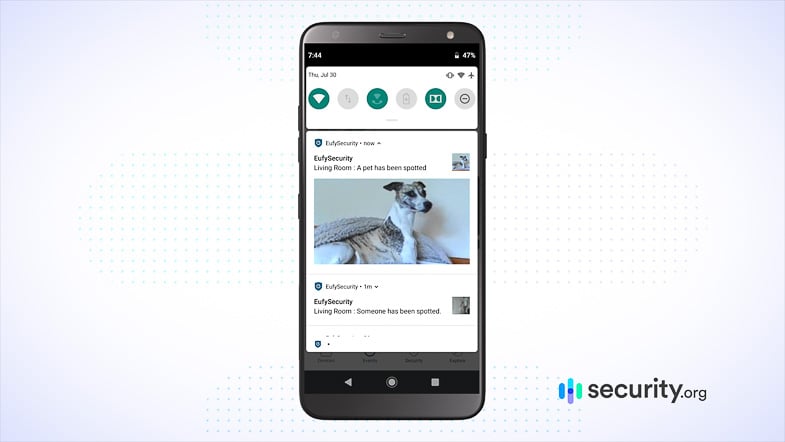
Recap
Before you go on a vacation, you take the time to plan where you’re going, how you’re going to get there, and what you’re going to do once you’re there. Why wouldn’t you also take the time to plan out what will happen to your home while you’re away? Hopefully, the suggestions we’ve outlined here will help you feel more secure whether you’re worried about burglaries, fires, or floods. After all, you deserve to get some rest and relaxation when you’re on vacation.
FAQs
We’re not quite finished. Below, we’ve provided answers to some of your most popular questions about how to secure your home when you’re on vacation.
-
Should I leave my curtains open or closed when I’m away?
Assuming you leave your blinds or curtains open under normal circumstances, keep them open while you are away, too. Burglars look for any indication that you’re not home. If you keep your curtains open during the day when you’re around, closed curtains will be out of the ordinary. Of course, if you like your curtains closed, it will seem odd to leave them open suddenly.
-
What do you do with your house when you’re on vacation?
You should secure your house when you’re on vacation by following these steps:
- Install a home security system. In addition, sign up for 24/ 7 professional monitoring, at least while you will be away.
- Check your home’s security system before you leave. Make sure devices are working properly and have fresh batteries.
- Alert your security company. Let your security company know where you’re going and how long you’ll be away.
- Talk to your neighbors. Ask neighbors to keep an eye on your house while you’re gone.
- Make your home look like you’re there. Suspend the mail, keep your lawn tidy, set your lights to go off and on, and park a car in your driveway.
-
How do burglars pick houses?
Burglars pick houses that they believe will be easy to break into. A number of factors go into their decisions. First and foremost, burglars prefer unoccupied houses. That means they’re on the lookout for overstuffed mailboxes, full garbage cans, and high grass. In addition, thieves target homes with few security barriers. Homes that lack security systems, cameras, and adequate lighting are ideal to burglarize.
-
How do you scare burglars away?
The best way to scare burglars away is by signaling to them that you’re protecting your home. We recommend the following steps:
- Install outdoor lights and security cameras. Burglars are more reluctant to attack a home if they know there is a high probability they will be caught.
- Create the impression you are home. Burglars also prefer to break into homes that are empty. Make your house look like someone is home, even when no one is. For example, check your mail regularly. Maintain your lawn, and take out the trash. Finally, invest in smart lights and smart plugs. You can use these smart devices to create schedules and make it appear you are moving about in your house.
